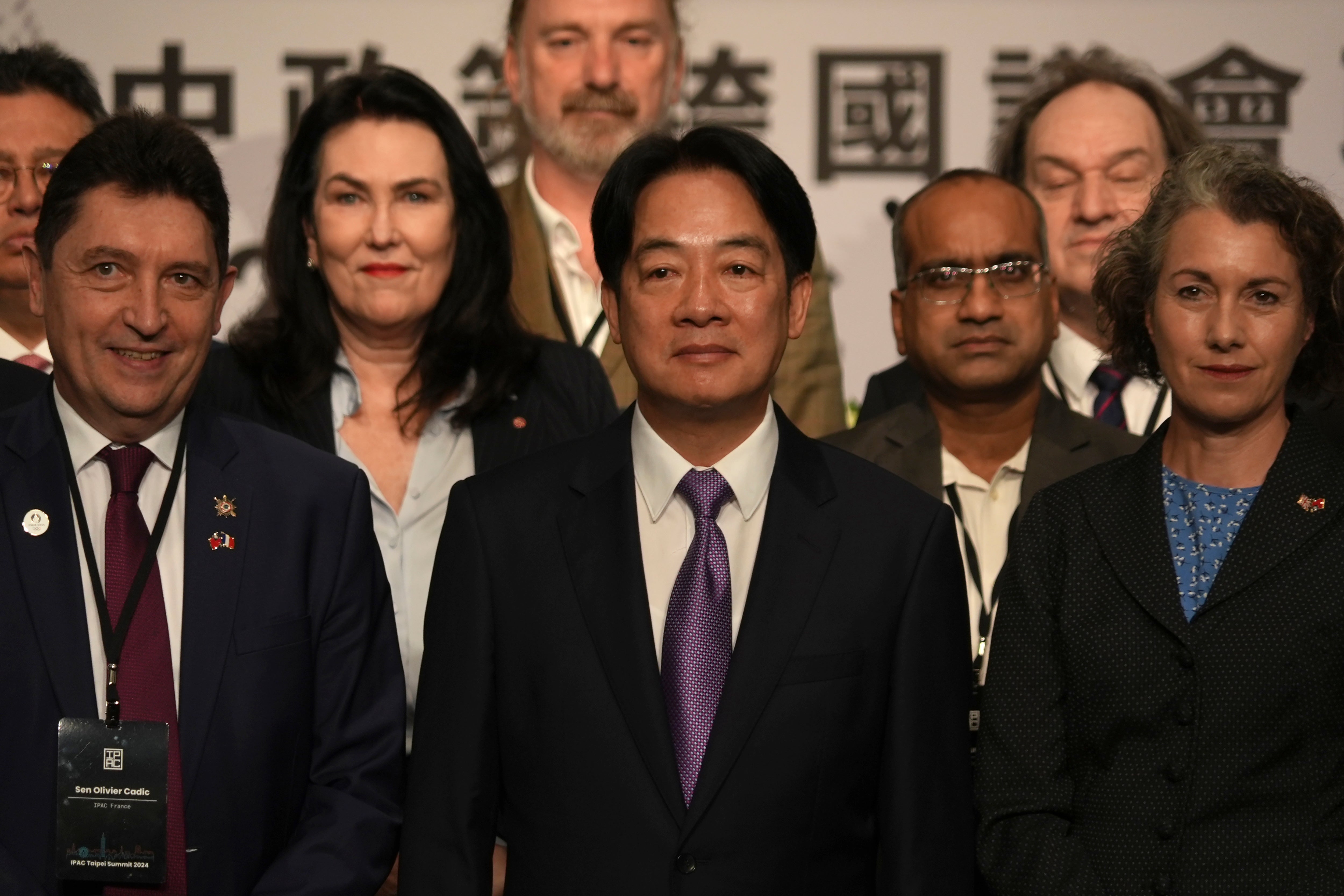Chinese invasion of Taiwan would be worse global crisis than Ukraine war or Covid, warns president
President Lai Ching-te addresses largest ever gathering of foreign lawmakers to visit Taiwan
Taiwan’s president Lai Ching-te has warned that a Chinese invasion of the self-governed island would have worse global impacts than either Vladimir Putin’s war on Ukraine or the Covid pandemic.
Mr Lai was speaking on Tuesday during the largest-ever gathering of foreign lawmakers and dignitaries in Taipei, at a summit chaired by the Inter-Parliamentary Alliance on China. The coalition, with hundreds of members from parliaments in more than 35 countries, is focused on monitoring Beijing’s threats to democracy and human rights.
Lawmakers met on Monday and held panel discussions on Tuesday at the event, attended by The Independent, which is taking place despite intense pressure against participants from the Chinese government.
Mr Lai said he hoped the summit would “allow the world to understand that any conflict in the Taiwan Strait will have a more profound economic impact on the world than the Russia-Ukraine war and Covid-19”.
MPs from countries including the UK, Australia, Japan and South Korea have travelled to Taipei for the talks, and at least eight of those invited have spoken out about being contacted by Chinese officials urging them not to attend. Some were even offered invitations to visit the Chinese mainland instead – or asked to explain why they were planning to travel to Taiwan.
The Taiwanese president praised those attending the talks for showing up despite China’s blocking tactics, which he described as part of a broader campaign of intimidation designed with one ultimate goal: Xi Jinping’s “authoritarian external expansion” to seize control of Taiwan.

Mr Lai said the island has a detailed action plan in the event of an invasion from China, and praised the conduct of “unscripted, actual-combat” drills earlier this month to bolster his defence forces, but said this would not be Taiwan’s preferred outcome. “Peace and stability across the Taiwan Strait are closely related to global democracy, peace and prosperity,” he said.
“Taiwan will make every effort to work with its democratic partners to build a ‘democratic umbrella’ to protect democratic partner countries from the threat of authoritarian expansion,” he told the gathering of lawmakers, journalists and analysts.
On Monday, before the start of the discussions proper, Taiwan's Ministry of Foreign Affairs hosted the visiting lawmakers on a diplomatic tour of the island – an excursion that was punctuated by China sending at least a dozen warplanes across the median line of the Taiwan Strait.
Amid the looming threat of Chinese military action, Taiwanese vice-president Hsiao Bi-khim met the lawmakers for “candid discussions” and spoke “very persuasively” about the importance of maintaining stability in the region, according to IPAC’s director Luke de Pulford.
“There were a lot of different opinions about different scenarios that can happen around the Taiwan Strait. What they do seem to agree on is that [an invasion] must not be allowed to happen, it must be deterred from happening and [we must] use everything that we can in our diplomatic toolbox and otherwise to prevent it from happening,” he told The Independent.
The IPAC director also addressed China’s attempted interference with the summit, telling Beijing: “You don’t get to decide the travel plans of foreign politicians.”
“They tried to bully the global South countries. They wouldn’t dare to do it in Western, richer democracies. They think they can bully and coerce, which is even more deplorable. China’s intimidation tactics did not work.”
Join our commenting forum
Join thought-provoking conversations, follow other Independent readers and see their replies
Comments
Bookmark popover
Removed from bookmarks